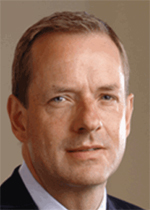 |
| GSK CEO Andrew Witty |
A drumbeat of policy steps and guidance from China so far this year has made it more than clear the country intends to buy, make, regulate and prescribe drugs in drastically new ways to lower costs--and that should ring a bell for earlier insight along those lines by GlaxoSmithKline ($GSK) CEO Andrew Witty.
Last week, Bristol-Myers Squibb ($BMS) said it would stop direct-to-doctor sales support activities in China, according to Reuters, but not in any postings on its website. An email to the company seeking comment was not answered by press time.
Witty made that decision for GSK more than a year ago--also in connection with legal troubles over payments that in GSK's case caught the eye of local regulators first.
In the case of BMS the trigger was likely a $14.7 million fine paid in October last year to settle a case by the U.S. Justice Department under the Foreign Corrupt Practices Act for providing cash incentives and gifts to promote China sales. BMS did not however admit guilt. GSK did and paid a whopping $489 million fine. Other firms have been caught as well in China and abroad and similar news on this front is more than likely.
The reasons are clear. The old model has been ditched by China as part of its own corruption crackdown. Last year for example, China moved to scrap a markup on drugs by state hospitals that used the earnings to fund operations--and which provided an incentive for doctors to write prescriptions.
In regional tenders this year in China, evidence of sharp-elbow pricing abounds and at the State Council level the promise of higher volumes through wider insurance coverage is expected to translate into lower costs and higher quality as small players get squeezed.
On the fourth quarter earnings call, an embattled Witty took great pains to describe a company involved in a massive transition of business priorities across all markets that includes a halt since the start of the year on all speaker fees for healthcare practitioners in favor of an "industrial level" field force of medical professionals on staff.
"We believe, despite much commentary, that we have really established some significant leadership positions in terms of our new commercial model," Witty said on the call.
If China is the example to go by, Witty's insights into the way drugs will be bought and sold not just in China, but around the world, are proving spot on.
A key test will be the next update of China's national reimbursement list, which has remained the same since 2009. Speculation is growing that a new list as early as this year could include cutting-edge chronic treatment therapies that the government would work hard to buy in volume at sharp discounts to current prices.
One reason is that demand by patients in China for therapies to treat hepatitis C, a wide range of oncology needs and for biologics not available has caused a domestic backlash on the lag in approvals. Chinese patients that can afford it, flock to Hong Kong and other nearby destinations for many such therapies now.
Indeed, that could be a driver behind negotiations to cut the prices of 5 imported or patented drugs in China, four from multinationals, that are progressing under a pilot program, Li Bin, director of the National Health and Family Planning Commission said last week.
Also late last week, the State Council, China's cabinet, issued a guideline on March 11 to spur supply of urgently-needed clinical drugs produced at home.
That rings a bell on the Witty front as GSK's ViiV Healthcare unit last year signed a deal to have Shanghai-based Desano Pharmaceuticals manufacture HIV therapy Tivicay.
That will be one to watch if a new reimbursement list is produced this year.
- here's a story from Reuters on BMS
- here's the release from the State Council